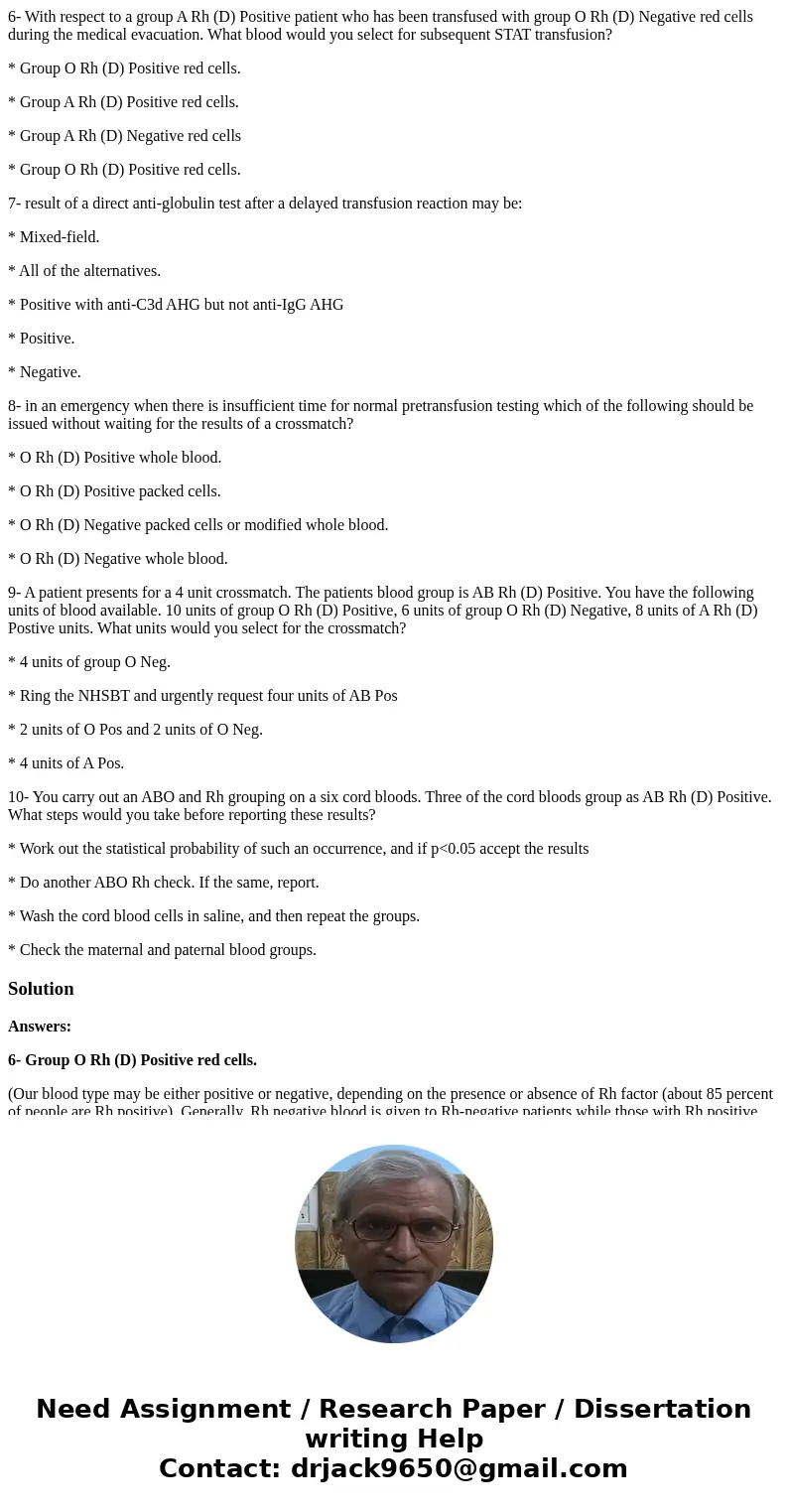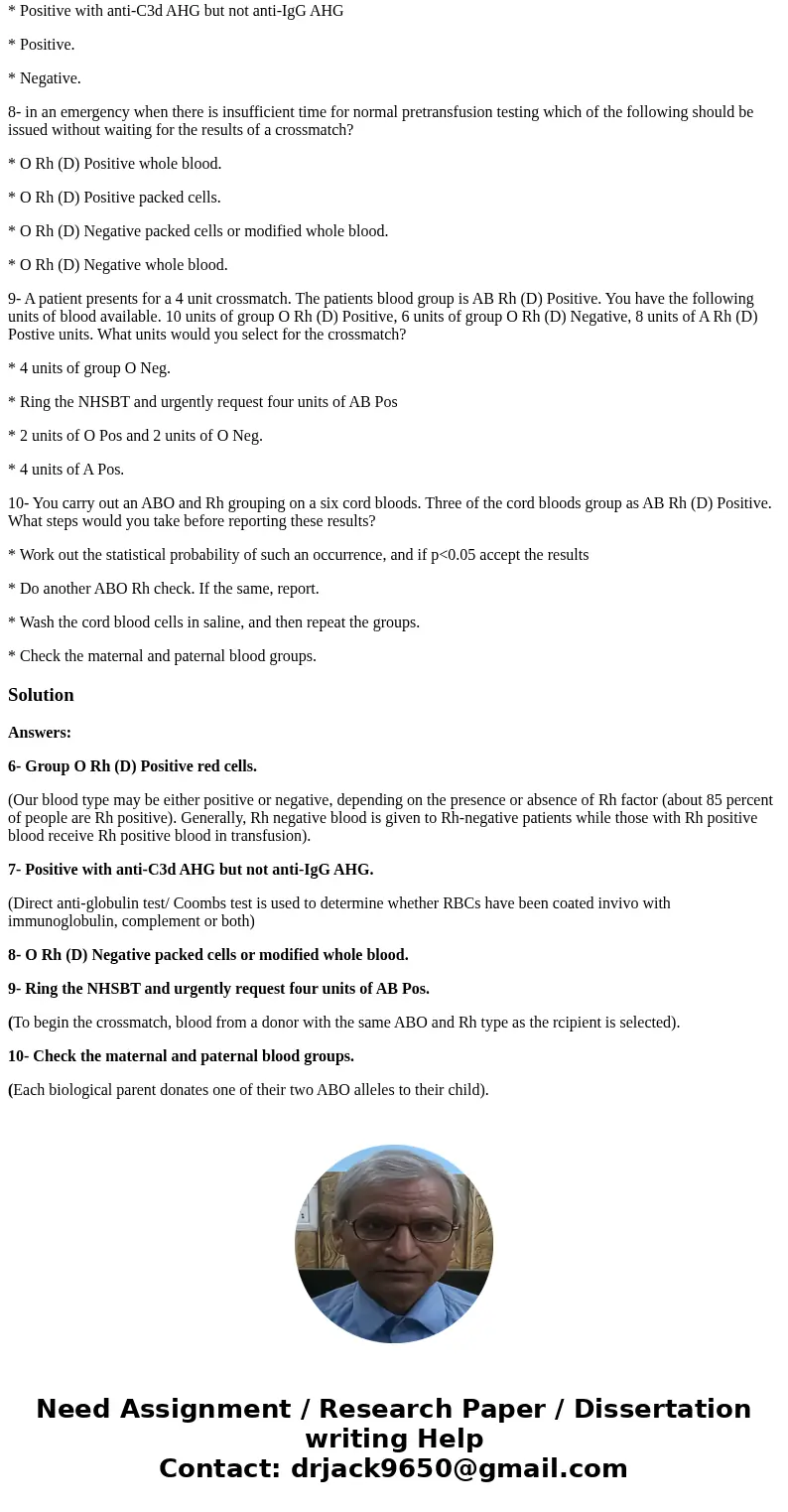6 With respect to a group A Rh D Positive patient who has be
6- With respect to a group A Rh (D) Positive patient who has been transfused with group O Rh (D) Negative red cells during the medical evacuation. What blood would you select for subsequent STAT transfusion?
* Group O Rh (D) Positive red cells.
* Group A Rh (D) Positive red cells.
* Group A Rh (D) Negative red cells
* Group O Rh (D) Positive red cells.
7- result of a direct anti-globulin test after a delayed transfusion reaction may be:
* Mixed-field.
* All of the alternatives.
* Positive with anti-C3d AHG but not anti-IgG AHG
* Positive.
* Negative.
8- in an emergency when there is insufficient time for normal pretransfusion testing which of the following should be issued without waiting for the results of a crossmatch?
* O Rh (D) Positive whole blood.
* O Rh (D) Positive packed cells.
* O Rh (D) Negative packed cells or modified whole blood.
* O Rh (D) Negative whole blood.
9- A patient presents for a 4 unit crossmatch. The patients blood group is AB Rh (D) Positive. You have the following units of blood available. 10 units of group O Rh (D) Positive, 6 units of group O Rh (D) Negative, 8 units of A Rh (D) Postive units. What units would you select for the crossmatch?
* 4 units of group O Neg.
* Ring the NHSBT and urgently request four units of AB Pos
* 2 units of O Pos and 2 units of O Neg.
* 4 units of A Pos.
10- You carry out an ABO and Rh grouping on a six cord bloods. Three of the cord bloods group as AB Rh (D) Positive. What steps would you take before reporting these results?
* Work out the statistical probability of such an occurrence, and if p<0.05 accept the results
* Do another ABO Rh check. If the same, report.
* Wash the cord blood cells in saline, and then repeat the groups.
* Check the maternal and paternal blood groups.
Solution
Answers:
6- Group O Rh (D) Positive red cells.
(Our blood type may be either positive or negative, depending on the presence or absence of Rh factor (about 85 percent of people are Rh positive). Generally, Rh negative blood is given to Rh-negative patients while those with Rh positive blood receive Rh positive blood in transfusion).
7- Positive with anti-C3d AHG but not anti-IgG AHG.
(Direct anti-globulin test/ Coombs test is used to determine whether RBCs have been coated invivo with immunoglobulin, complement or both)
8- O Rh (D) Negative packed cells or modified whole blood.
9- Ring the NHSBT and urgently request four units of AB Pos.
(To begin the crossmatch, blood from a donor with the same ABO and Rh type as the rcipient is selected).
10- Check the maternal and paternal blood groups.
(Each biological parent donates one of their two ABO alleles to their child).


 Homework Sourse
Homework Sourse